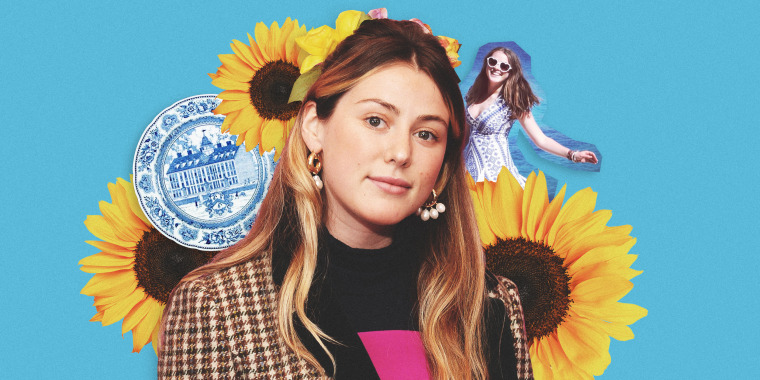For the last 24 hours, one name has been the subject of a deluge of tweets: Caroline Calloway.
Calloway, 27, a wildly popular Instagram influencer with nearly 800,000 followers, was the focus of an article published by The Cut, New York Magazine's women-centric news brand, on Tuesday, in which Calloway's former friend and ghostwriter Natalie Beach detailed her allegedly volatile friendship with the internet star.
But before the article was published, Calloway was already a well-known Instagram blogger, documenting her days as a student at the University of Cambridge with paragraphs-long captions and whimsical photographs, and later showing off her West Village apartment in New York City as she created and sold her art.
Calloway first became prominent on Instagram during her time at Cambridge, where she studied art history until her graduation in 2016. It was during this time she first started her lengthy captions, discussing her time at the school or things that interested her, like the study of memories at Northwestern University. Her successful online presence also helped to earn her a book deal with Flatiron Books for a memoir entitled, "And We Were Like". According to Beach, the publisher paid Calloway a $375,000 advance for the memoir.
She eventually withdrew from the book deal, telling Man Repeller in 2018 that she didn't like the way she had portrayed herself in the book. Flatiron Books asked Calloway to return more than $100,000 of the advance, according to Beach, which Calloway said she is still working to resolve with the publisher.
The influencer is alleged to have made her money through sponsored posts on her Instagram, according to Insider. In a now-deleted post, Calloway said she charged brands up to $1,000 for a mention in her Instagram story and up to $5,000 for a regular post, Insider reported.
She continued to build a following over the subsequent years, but earlier this year Calloway made headlines when a national tour of creativity workshops she had announced in late 2018 were called a "scam" by writer Kayleigh Donaldson. A ticket to the four-hour seminar, which was set to kickoff in New York City, ran $165, according to Donaldson.
"Instead of monetizing my audience’s attention span I thought I would sell my expertise on writing, art-making, and community-building," Calloway wrote in an article for Refinery29. "On top of that, I wanted to bring my fans together for the first time after growing up together online for seven years."
Donaldson tracked the progress of the tour in a series of tweets that went viral by documenting Calloway's Instagram stories until the whole tour ultimately collapsed earlier this year.
Calloway said her first session in January was a success, but she fell short of delivering on the experience she had promised the attendees. She had to nix certain gifts that were supposed to be included in the ticket price, like hand-written letters she said she would write to her fans. She announced events at venues that were never booked, changed the duration of the event from four hours to three and asked guests to bring their own food after telling guests she would make them salad.
By mid-January of this year, Calloway was, as she put it in the Refinery29 article, "hashtag cancelled."
"In the end, I ended up refunding all the attendees, because the world was calling me a scammer and I would have done anything to make it stop. I thought returning money might make onlookers calm down. It didn't," she wrote.
Although she had promised more tour dates across the country, she began cancelling the events. Calloway also cancelled an event she said she was holding in Atlanta on Feb. 2, during the Super Bowl, according to Insider.
"I take full responsibility for letting my total inexperience with event planning and GREED create a situation where the details of the tour were ever-changing, preparation was inadequate, and the event did not match the description by the time it went on," Calloway posted on Twitter.
But soon after Calloway cancelled the event, she un-cancelled it, holding another session in New York in late January. Calloway seemed to embrace her new identity as an internet foil, wearing a shirt at the session that read "scammer," according to Insider.
It's unclear how many sessions of the workshop were held in total, but it appeared only one took place before the tour was cancelled and another took place after it was "un-cancelled."
Continuing to lean into her internet infamy, Calloway held another workshop in August called "The Scam," which sold out.
Calloway continues to make her art, which she sells, and posts on Instagram. In the lead-up to the story from The Cut, she posted several times about the article. In those posts, she said she has only read parts of it and would reply once she finished it.
NBC News has reached out to Calloway for comment.
On Wednesday, Calloway posted to Instagram saying that she was printing out The Cut's article to read and discuss with her therapist.
"After therapy’s done I’ll beginning writing my response to her essay. I have some things to say," Calloway wrote.

